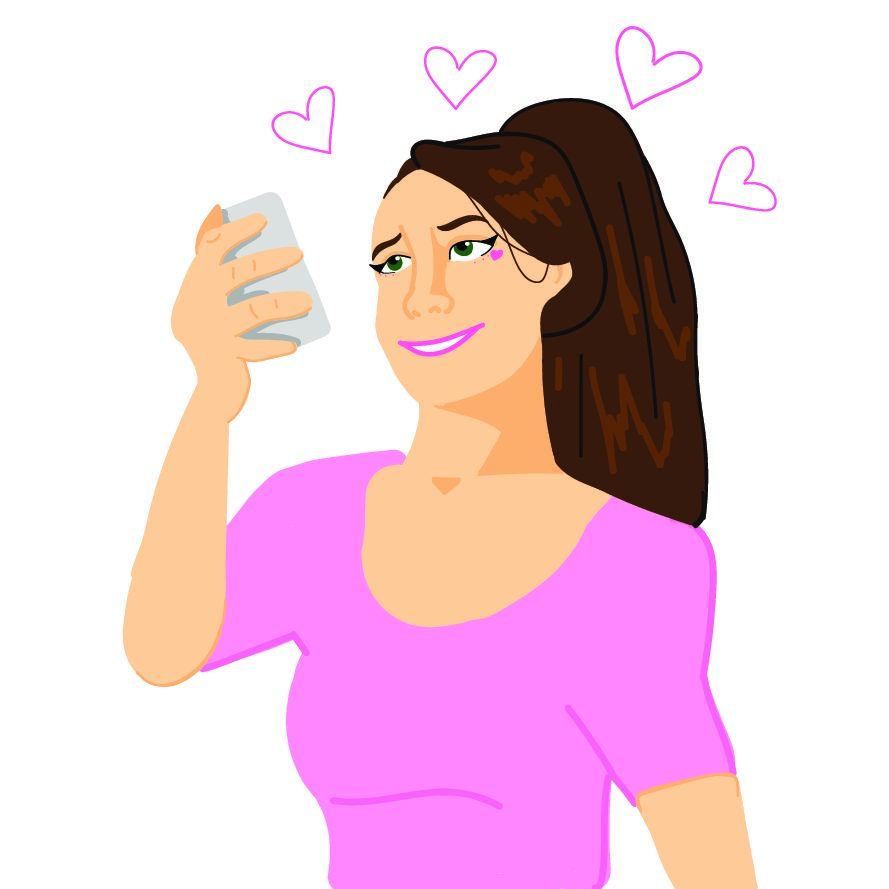It’s no secret that social media can be harmful to mental health and self-esteem. Posts usually show the best parts of people’s lives and aren’t a true reflection of life, but it can be easy to forget that. The popularity of selfie filters and photo editing apps only exacerbates this problem.
Ever since Snapchat introduced their selfie filters in 2015, they’ve become a social media staple, and Instagram has jumped on the trend. Most of these filters smooth the texture and tone of skin and give the appearance of wearing makeup, like rosy cheeks or longer eyelashes. Some filters can even alter face shape and the shape of facial features, such as thinning noses. Even filters that are meant to be more fun or silly still include these beautifying features.
While these filters may sound innocent enough, they can have negative effects and deeply damage people’s self-esteem.
People see what they look like with these filters and grow accustomed to seeing their filtered faces in photos. This can lead to selfie dysmorphia. This has even led some people to get plastic surgery to have their faces look how they do on social media. In 2017, 55% of plastic surgeons had patients request surgery to improve their appearance in selfies.
Another large aspect of this issue is photo editing apps like Facetune, which are popular on Instagram. Basically a simple version of Photoshop, Facetune users can alter everything from their skin texture to their body shape. Apps like this are even worse than selfie filters since the alterations can often be undetectable.
Erasing a blemish every now and then may not be that harmful, but extremely digitally altering photos can create an unrealistic self-image and negatively affect people who see these photos. Some people aren’t even able to post photos that haven’t been changed in some way.
While regular people using these apps can cause damage to themselves and the people who follow them, the most harm is done through celebrities and influencers. These people might have millions of followers who see their edited photos and are affected by them. It can be easy to see someone famous online who is seemingly perfect and begin to compare yourself to them. This is especially true for younger and more impressionable followers who have a low level of confidence.
Facetune and similar apps used in photos are so prevalent on Instagram that it has almost become the norm. It sets unrealistic beauty expectations on social media, especially since no one actually looks like these edited images.
To combat this, celebrities should disclose if their photos are edited. Even though the images are still online and visible, followers can at least be aware that they are not real and compare themselves less.
These filters and apps can be fun and harmless, but people should seriously consider how they might be affecting their self-image and mental health, especially if you have a hard time taking selfies without using a filter or posting any photos of yourself that aren’t altered.
Even if your using filters might not be affecting you personally, it still might influence others online. And in a small way, it’s still contributing to the normalization of impossible physical standards.
Social media should be fun and not something that makes people feel bad about themselves every time they use it. We should embrace our real selves, flaws included.
























